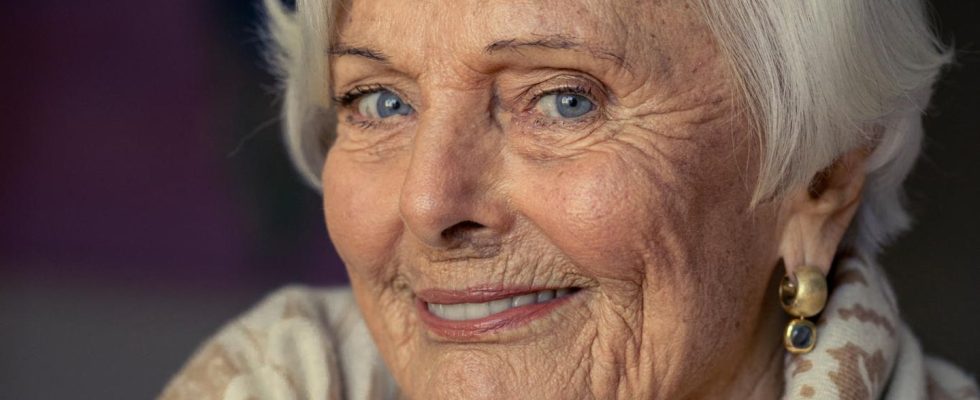Looking back at a big, fast-paced life: Ruth Maria Kubitschek, 92, about Brecht, Dietl, their roles – and when it’s time to go.
She has had a small buffet arranged, and there are piles of freshly signed autograph cards on the desk. In front of her were notes that were supposed to have resulted in a biography before she abandoned the plan. Ruth Maria Kubitscheks Apartment still breathes the spirit of an old world, of splendor, grandeur, hospitality. “I’m a little excited now,” she says, and immediately the legendary expression appears on her face, that unmistakable smile for which she was loved beyond measure. It doesn’t start with the mouth, no, higher up. The first thing Kubitschek does is smile with her eyes.
Ms. Kubitschek, you have left everything behind several times in your life and started anew somewhere else. What does that say about you?
Actually, it always had to do with men. The first time I had no other choice: I was 14, the war was lost, and if I hadn’t fled Czechoslovakia over the Ore Mountains, a much older Slovakian would have married me. Perhaps this influenced me when I later left the GDR and my marriage, as did my life as a successful actress in Munich.
They are in 1931 Czechoslovakia born. What kind of childhood was that?
My father ran an open-cast coal mine. When I walked through the village, the geese came wobbling after me and nipped me. My grandmother from Gablonz asked me what I wanted to be when I grew up, and I said: a lady! I did theater for the first time when I was four, a Chinese woman. I was so excited that I shit my pants during the performance. Luckily I was standing in a small house so I was able to finish playing without anyone noticing.
I was less aware of the political situation than the opportunity (…) to personally meet the great actors of the time.
These were explosive times, Nazi Germany wanted that Sudetenland bring into the kingdom. Did you notice that as a child?
I remember the clashes between ethnic groups in Czechoslovakia, even shootings. We had to barricade ourselves behind the windows in the house. I was seven then. Our family first fled to Rudolstadt. When the Sudetenland became part of the German Empire, we returned.

